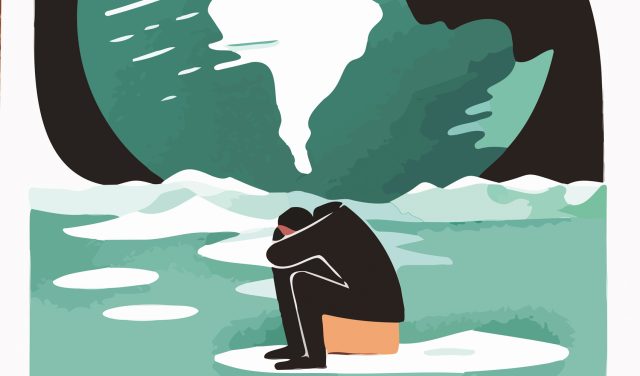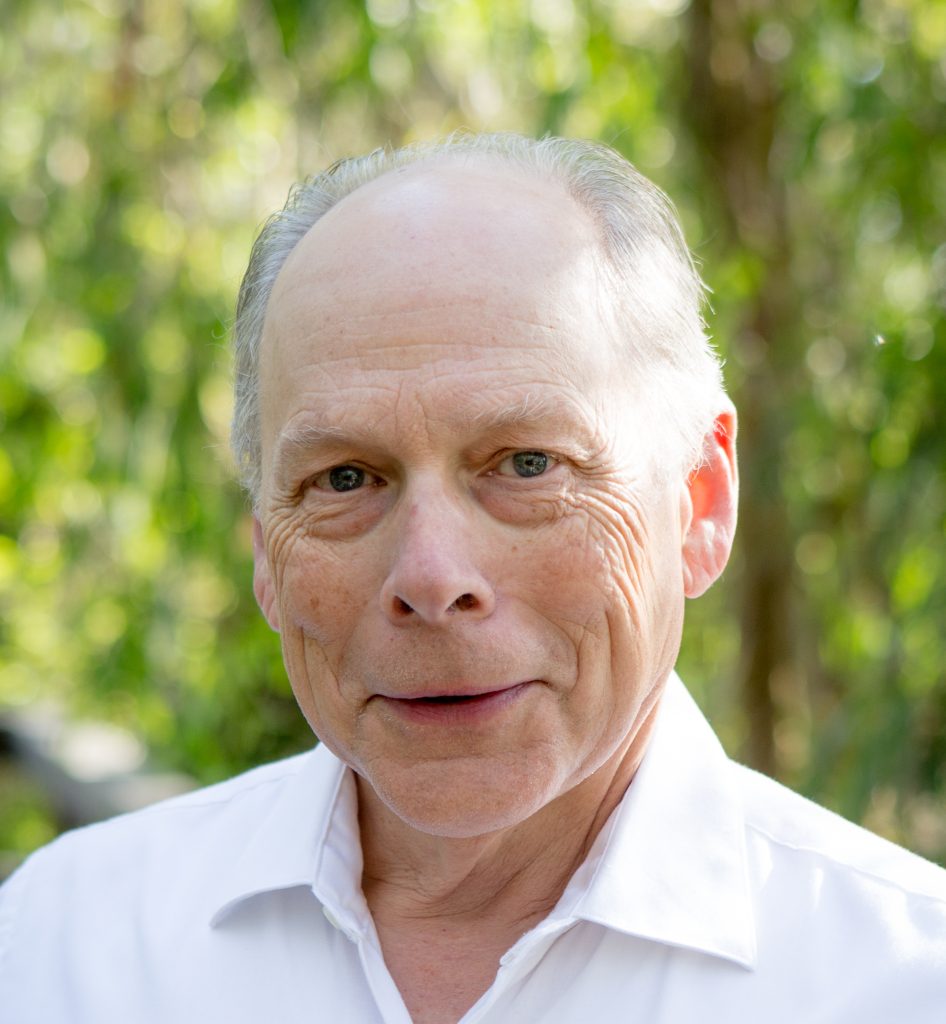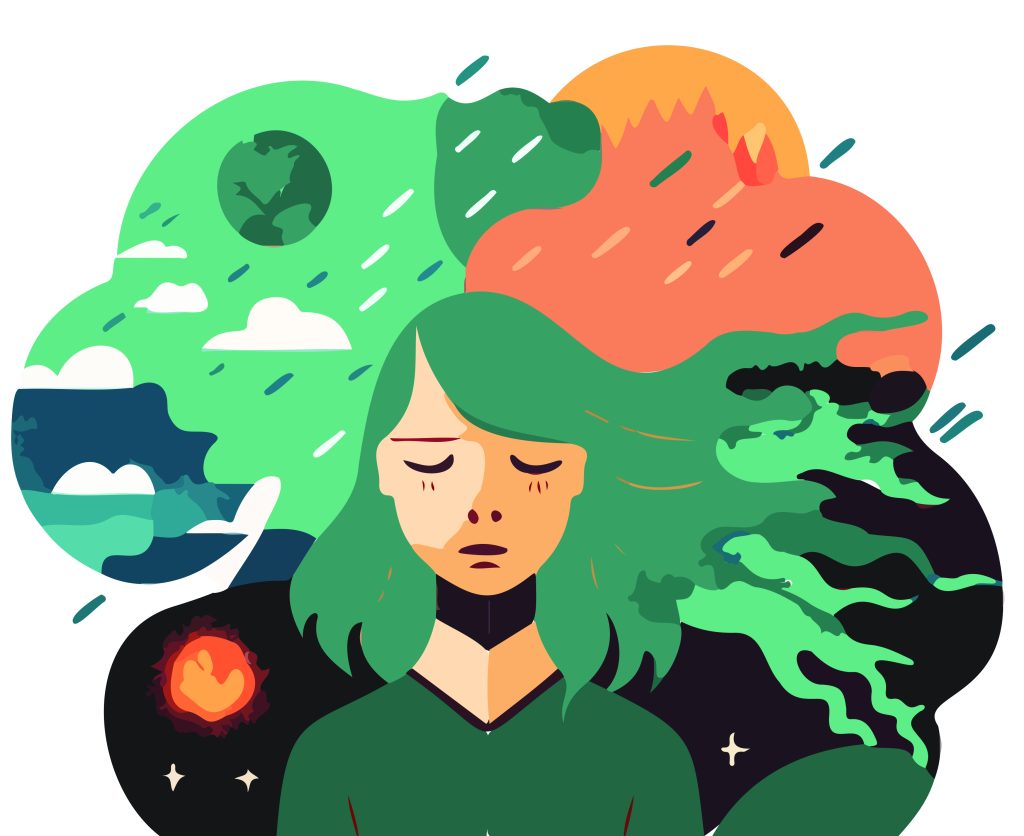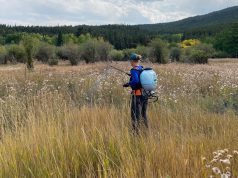
Jeff Kiehl had been a climate scientist at NCAR in Boulder studying topics like the greenhouse effect and stratospheric ozone for nearly two decades when something started to shift.
Sometime around the year 2000, he was looking at the projections for rapidly increasing emissions over the next century and decided to look back to the last time the Earth’s atmosphere contained that much carbon dioxide.
He was struck by what he saw — it was 40 million years ago and “a completely different world.”
“I distinctly remember sitting at my desk, looking at these numbers, looking at the projected warming and CO2 levels, and just asking myself, ‘What are we doing? Why would we do this?’” he says. “In that moment, my feeling was, ‘This has to be psychological.’”

Kiehl was so bothered by this disconnect between the severity of the problem and our collective capacity for action that he went back to school for clinical psychology and trained in Jungian analysis. Since then, he’s practiced as a Jungian psychotherapist and analyst, written a book on ecopsychology, led conferences and workshops, taught at Pacifica Graduate Institute and UC Santa Cruz, and won AGU’s Climate Communication Prize in 2012. He also continued his work at NCAR until retiring from his position in 2018.
Kiehl is winding down his career now, no longer practicing clinically or teaching at a university, but he still leads workshops and gives talks. Things are different from when Kiehl first began his work of marrying psychology and climate — back then only a few others were thinking about ecopsychology, which wasn’t even a term at the time, he says.
Now there’s a whole body of work dealing with the intersections of climate and psychology. A 2021 survey of 10,000 people ages 16 to 25 found that more than half of respondents were very or extremely worried about climate change, with more than 80 percent at least moderately worried. Half felt “sad, anxious, angry, powerless, helpless, and guilty.”
After the hottest summer on record and with local climate disasters like fires and flooding looming fresh in our collective memory, I had a conversation with Kiehl about the psychology of climate change and how we can address our mounting anxiety.
The interview has been edited for clarity and brevity.
What are the psychological reasons we might avoid acting on the information we have about climate change?
Fight, flight and freeze mechanisms are an integral part of the older part of the brain [known as the limbic system]… It’s affective, and it’s emotional … When you’re presented with traumatic information, the self-regulatory processes that normally work in a fluid manner are disrupted to the point where you cannot take in information. So if you’re going to talk to people about something that’s really threatening, like climate change, if you just bombard them with images of disaster after disaster after disaster, and that’s typically how it’s conveyed in the media, one response would be, well, people saturate. They’ll just shut down. They’ll disassociate.
Evolution has provided us with very primitive ways of responding as well as more sophisticated ways. A more sophisticated way from a psychodynamic, psychoanalytic approach is projection. ‘It’s not me that’s causing this. It’s them.’… These are not, in themselves, harmful ways of dealing with the world. They’re actually there for a reason — to preserve us and protect us, especially when we’re a young child. The problem is when we grow up, they no longer benefit us. They can actually prevent us from living a fully engaged, ethically responsible life. There are other factors that are more social, which are fear based. Fear of losing one’s autonomy — it’s a big one in the United States … It’s a culture we thrive on, but it is preventing us from acting on this problem.
How can someone combat feelings of helplessness, hopelessness, fear or anxiety?
If it’s severe, you go find somebody to work with. But in addition to that, or if you’re not going to do that, I think it’s absolutely essential to talk about how you’re feeling. And so one of the things I always encourage people to do is talk to your friend, talk to your family, or get a neighborhood group together. If you’re a member of a church or a social organization, find a time where you can just sit in a room. You don’t have to do psychotherapy, you just give people a chance to talk about how they’re feeling about what’s happening in the world with regards to the environment. That alone is helpful.
What are the psychological mechanisms there, where talking about it actually helps combat that hopelessness?
We know it’s age old. If you look at any Indigenous society, that’s what they’ve been doing for centuries, for millennia, you know, sitting in a circle and talking over their problems, talking with their feelings. There’s something innate in us that wants to do that — to share stories to talk about how we feel. Psychologically, from a dynamic point of view, it’s harmful to repress. It’s an unneeded stress that can be lightened by expressing it. You may not feel better in the moment, you may feel terrible. But over time, you feel lighter because you’re not holding all that stuff inside yourself…We are the storytelling animal and so we like to tell our personal and collective stories.
I think in recent years, it feels like the realities of climate change are hitting a lot closer to home. Boulder County, for example, has experienced devastating wildfire, drought and flooding in the last decade. How do those local climate disasters affect our psyche differently than when it felt like those problems were farther away?
I hate to say this, but that’s a good thing in terms of getting people to realize the severity of what’s happening. From that point of view, scientists will often say nothing’s going to be done about this problem until there’s a really, really big catastrophe, which will be so shocking that people will finally get their act together and start reducing emissions of carbon…I think the appearance of these catastrophes and disasters more frequently, more intensely, at home, not just in some remote place, are going to force people to take action.

What are some of the ways we can take action?
For me, there are three things to do. I’ll start with the personal level. Personally, how am I living my life? What’s my carbon footprint? Can I change my lifestyle so that my footprint is smaller?
Beyond the individual, there’s local activities. These are the things like: Could I get together with a group of people — friends, family or strangers — and meet once a week or once a month? Could I get involved in my city’s planning for how it’s addressing climate change? Can I communicate this issue? The science [behind climate change] is not rocket science; it is pretty straightforward. The more you talk about it, the more it’s visible.
Then we work to the national scale. If you want to be on the frontlines in a march or protest, that’s what you do. Another one of equal importance is to vote. Vote for people that are committed to actually reducing carbon emissions. Your political engagement and your environmental activism are things you can choose to do.
There are things from a psychological perspective to be concerned about or aware of, even at the local level, that I’ve seen with environmentalists who burn out. So if you’re going to get engaged in social and environmental activism in particular, you should have a support network. And then of course, there’s the global level.
I believe in tipping points, social tipping points. And I think if you want to be hopeful, perhaps there is a social tipping point around climate change that we will reach a point where enough people are catalyzed that radical change can happen very quickly, and we can finally address the symptom.
Now there’s a deeper cause to that symptom, the symptom being climate warming. But what’s the root cause? For me, that’s our relationship to nature. And this is deeply embedded in our myths, our religions — these are thousands of years old.
What are some of those myths and how would you characterize our relationship to nature?
Well, our relationship to nature is one of dissociation. We are just collectively fragmented and distanced from nature. We view ourselves as apart from nature, rather than a part of nature. And to see that contrast, you just have to spend time with Indigenous peoples. And one of the key phrases of an Indigenous society is reciprocity and that we are in reciprocity with the natural world. We’re not separate from it. We’re inherently connected, interconnected to the natural world.
The mythic system that has pervaded the West is the Judeo-Christian belief system, in which from the very getgo we are told we have dominion over the earth. Dominion is just the opposite of reciprocity. So if you’re raised as an individual, you go through history as a culture, with the innate inherit lesson that we have dominion over nature. The end result of that is going to be a very, very different relationship to the natural world than one in which I am born into and culturally informed that I have in reciprocity with nature. Ultimately, we are paying the price for inculcating in us, generation after generation, this belief that our purpose is to control nature.
We have to recognize that we are in a reciprocal relationship interconnected with nature. It has an inherent value — it’s sacred… There are still people out there living this story. We have unfortunately created a system which has created this other story, which has been very destructive. And from my perspective, it’s really the cause of the symptoms. So we can treat the symptoms — getting off of fossil fuels is treating the symptom — but ultimately, we are going to have to change our conscious and unconscious relationship to the natural world. Otherwise, it’s just a quick fix, but we’re in such a dire situation that we need the quick fix.
Is there anything else that you want to add or think we’ve missed in this conversation?
I was thinking about what we were going to talk about this morning and there was a word that just spontaneously came to me. The word was courage. That’s something that isn’t talked about a lot anymore. It’s a part of many stories… That doesn’t mean military courage or power or to dominate other people. It’s a sense of feeling that I can go out and can make a difference in the world. I can make a difference in my own life. And I can go out and help be of aid to nature, first and foremost for me. And the choice to actually do that, that for me is courage — to consciously say, ‘I’m not going to be complicit. I’m not going to stand back and watch all this happen.’ … We are innately born with a sense of courage, but we don’t realize it. And if there was ever a time in the history of our civilization in which we all need to find that sense of courage within ourselves, it’s now.
Looking for more on the intersections of climate and mental health? Here’s three resources Kiehl recommends:
ON THE PAGE: Facing Climate Change: An Integrated Path to the Future by Jeff Kiehl is available via Columbia University Press.














